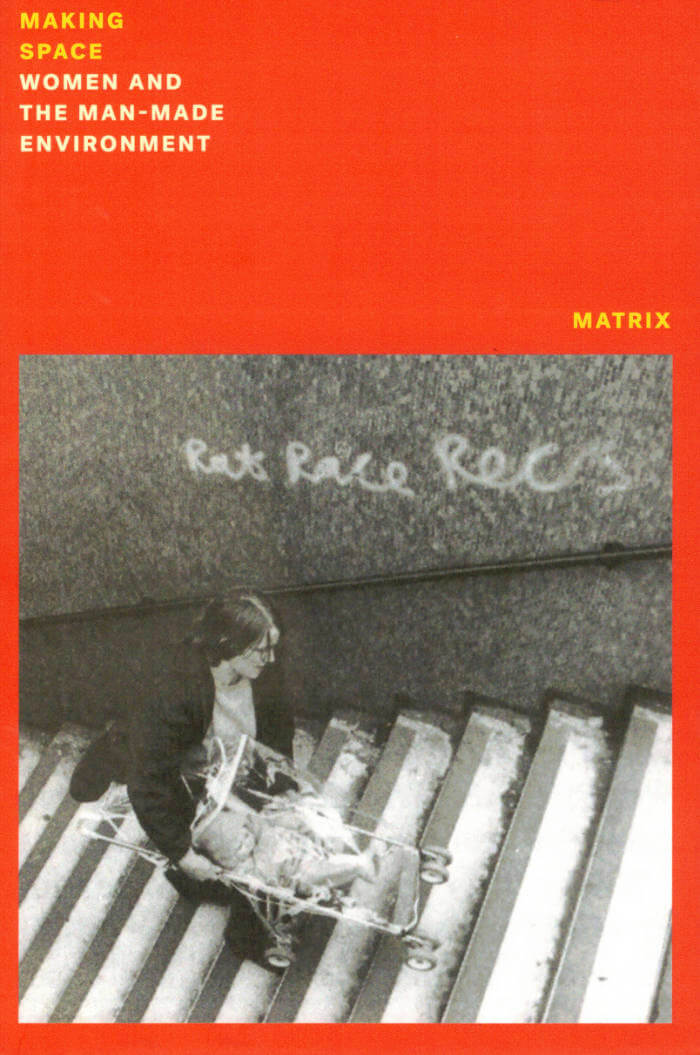
Making Space: Women and the Manmade Environment
Making Space is a pioneering work first published in 1984 which challenges us to look at how the built environment impacts on women's lives. It exposes the sexist assumptions on gender and sexuality that have a fundamental impact on the way buildings are designed and our cities are planned.
Written collaboratively by the feminist collective Matrix, tthe book provide a full blown critique of the patriarchal built environment both in the home and in public space, and outline alternative forms of practice that are still relevant today. Making Space remains a path breaking book pointing to possibilities of a feminist future.
Some authors worked for the London-based Matrix Feminist Architect's collective, an architectural practice set up in 1980 seeking to establish a feminist approach to design. They worked on design projects—such as community, children and women's centres. Others were engaged in building work, teaching and research.
The new edition comes with a new introduction examining the context, process and legacy of Making Space written by leading feminists in architecture.







